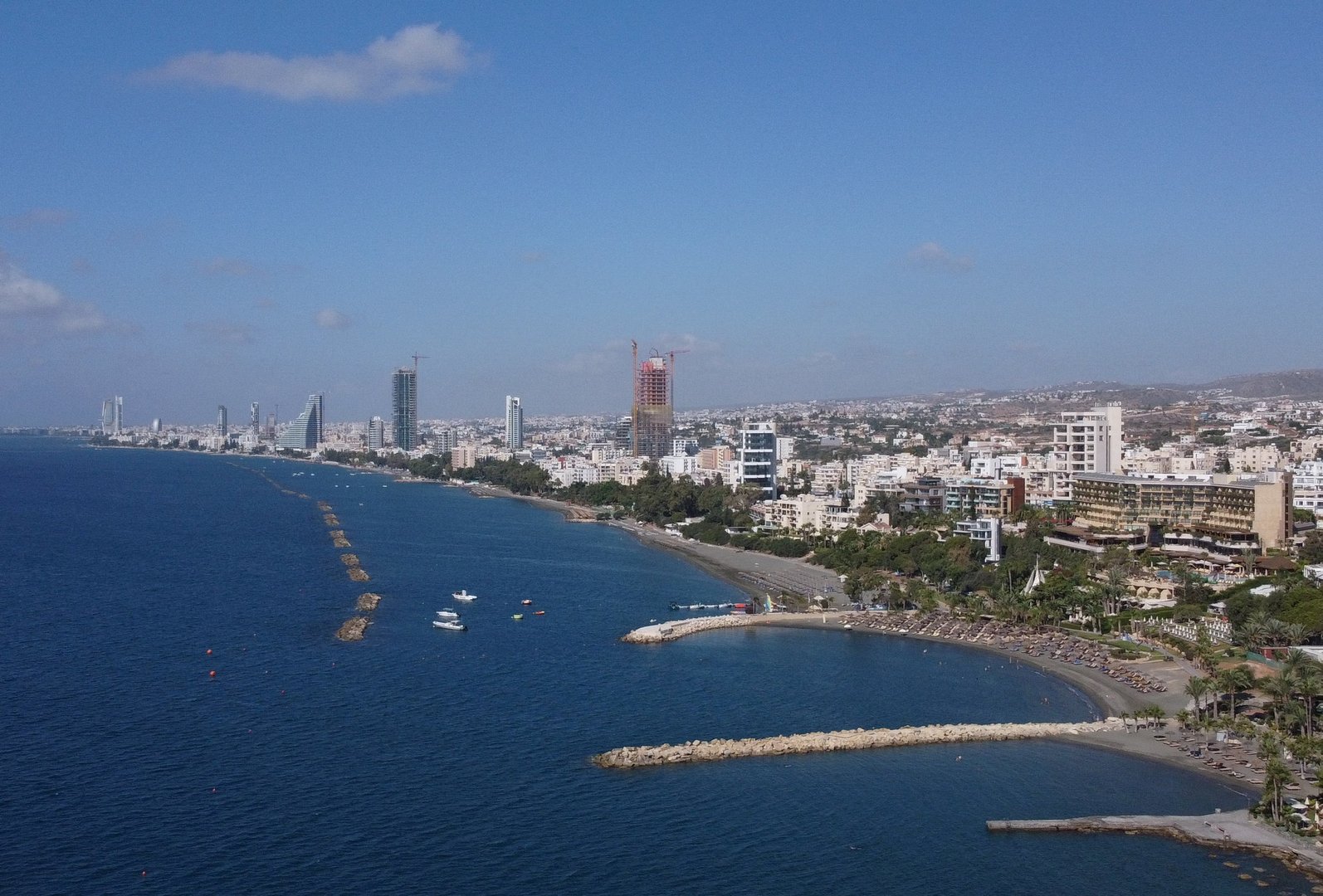By Les Manison
Newly elected President Nikos Christodoulides promised in his campaign that his government would be one of “broad social acceptance”. For the economy this should mean a situation where all citizens can benefit from economic growth. But to date the Christodoulides government has shown no sign of significantly changing the policies of the Anastasiades administration characterised by the inequitable and uncaring allocation of resources to enrich themselves and their cronies. Indeed, the new government with its scandalous appointments of public officials and decisions favouring well-paid civil servants and bank employees is recklessly pursuing the crony capitalism of the previous administration.
Moreover, Christodoulides is failing to address or even recognise major socio/economic issues such as the cost of living and debt servicing pressures on a great many households as well as the country’s mounting demographic problems. It is laughable, though a serious concern, that the key political partner of the president, Nicolas Papadopoulas, has baldly asserted that Christodoulides in his first days in office has “grappled with all the challenges facing the country and has exhibited worthy work”. Also, Nicos Anastasiades has stated, rather boastfully, that the “successful governance”, of his term has continued under the new president.
Cronyism and inequity continue
The Anastasiades administration did not care about the quality of economic growth. It just cited figures of the growth of real GDP per se with no concern on how the gains in GDP and income were distributed and whether income and wealth inequalities were being widened. Furthermore, the impact of how the various components of GDP, such as the burgeoning construction of towering apartments, were affecting the environment were hardly taken into account.
There is much worry, at least by a few caring persons, that the new Christodoulides administration is persisting with the inequitable and environmentally unfriendly policies of the previous government. Indeed, the recent personnel appointments and policy measures of the Christodoulides government demonstrates that it does not care about good governance and how its policy decisions are widening income and wealth inequalities. More specifically, the appointments of persons to key government posts by Christodoulides on the basis of loyalty rather than apolitical competence, such as that of Michalis Michael to the Public Service Commission Board, indicates the irresponsible lack of concern for good governance. In reality, the crony culture of “jobs for the boys” and politically connected appointments and promotions of government employees continues unabated.
In giving cost of living adjustments to higher-paid public sector and bank employees as against nothing for at least 65 per cent of lower-paid private sector employees not eligible for cost-of-living adjustments, the government is not only exacerbating mounting income equalities, but is substantially widening inequality between privileged government employees and most private sector employees. Indeed, the inability of many private sector employees to have their low wages protected from inflation is driving a number of households into poverty. Furthermore, with many Cypriots unwilling to work for lower wages, employers take on a rapidly growing number of foreign workers including asylum seekers to meet their labour requirements.
The relatively low wages paid to the youth of Cyprus and their high unemployment rate (18.7 per cent in March 2023) is having a profound negative effect on the ability of young couples to afford decent housing and to raise a family. In consequence the population of Cypriots is declining and Cypriot children in some primary schools have become a minority. Indeed, demographic issues including the composition of the labour force arising from the income and wealth inequalities between the property-owning older generation and the renting younger generation need to be seriously addressed.
There is no concrete evidence that the crony capitalism of the Anastasiades administration, which contributed to an inefficient and environmentally unfriendly use of resources, is being curtailed. Tax breaks and reductions and generous treatment by banks continue to foster over-investments by leading developers in the construction of “luxury” properties and commercial establishments. In addition, the building of certain new hotels to cater for the upsurge in mass tourism is harming coastal areas in violation of environmental regulations. And as exemplified by cases such as the abuse of EU funds by politically connected waste management companies, nothing is being done by the legal authorities to penalise offenders and prevent Cyprus from drowning in rubbish.
Insufficient efforts are being made by the Cyprus authorities to alleviate the heavy debt burdens of households and private companies. There has been an abject failure by the Central Bank to regulate the sale of NPLs by the banks. These distressed assets backed by property collateral have been sold off without transparent procedures to mainly predatory companies at huge discounts that in turn have resulted in wealth transfers to richer entities. NPLs have been removed from bank balance sheets, but households and businesses have still been left with very large amounts of unpayable debt. Indeed, at end-2022 outstanding debt of the Cyprus private sector amounted to over 59 billion euros or nearly 220 per cent of GDP, a factor hindering significantly private investments outside of the property sector and the more balanced growth of the economy.
New policy actions required
President Christodoulides should be forewarned that it can’t be business as usual in continuing the crony capitalism of the Anastasiades administration. The outrageous tax incentives and generous bank treatment afforded to property developers should be stopped as the country is over-supplied with unsellable “luxury” properties and the physical environment is being damaged. In fact, the over-supply of “luxury” properties in Cyprus has been a major factor in causing both the financial crisis of 2012/13 and the need for dubious schemes and corrupt practices, such as illegal sales under the golden passport scheme, to market such properties.
Moreover, fiscal and bank policies should be directed more toward allocating resources to implementing the Recovery and Resilience (R&R) plan agreed with the EU. Resources need to be moved away from the “luxury” property sector and allocated to higher value-added activities, including social housing construction. This will require the Council of Ministers to take action to largely eradicate the crony capitalism driving the questionable activities of property developers and their supporting cast of real estate agents, lawyers and bankers. And such action should involve the strict and even-handed enforcement of laws and regulations including those for protecting the environment.
The digitisation and greening transition priorities of the R&R plan if effectively implemented could be expected to create more decent jobs requiring skilled personnel. But, with no guarantee that job and other inequalities plaguing Cyprus would be significantly and quickly fixed, a need for much additional action is required. This should include raising the skilled labour intensity of investment projects, reforming the tax system, improving the effectiveness of the social welfare system in assisting vulnerable persons, and construction of social housing. Undeniably, the progressivity of the tax system should be increased and serious efforts made to tackle tax evasion so as to boost government revenue for enabling higher payments for social welfare and housing construction, as well as subsidies for younger persons undertaking entrepreneurial and innovation activities.
Furthermore, lower-paid private sector employees should be protected against inflation through arranging and extending full cost-of-living adjustments to workers earning monthly wages of less than 1,500 euros. In addition, regulations on minimum wages should be applied to cover employees in more sectors of the economy such as in agriculture.
Via new regulations and much better supervision by the Central Bank of Cyprus banks need to be induced to devote more of their operations to extending and rescheduling loans so as to finance real production and wealth creation and ease debt burdens of less wealthy households and businesses, instead of engaging excessively in the transfer of wealth to richer entities through foreclosures. Rather than subjecting protests against such foreclosures to lengthy court proceedings it would be preferable to pass a regulation giving original borrowers or mortgage holders the option to purchase the properties to be foreclosed at the discounted prices offered to predatory third parties. This arrangement should be done on a case-by-case basis in order to exclude strategic defaulters from taking advantage.
Finally, there should be less discrimination against smaller businesses and households by banks in the levying of interest rates and charges on loans and deposits. And in this connection interest rates on saving and fixed deposits of households should be raised in line with recent increases in ECB deposit rates.







Click here to change your cookie preferences